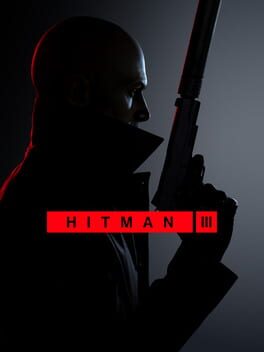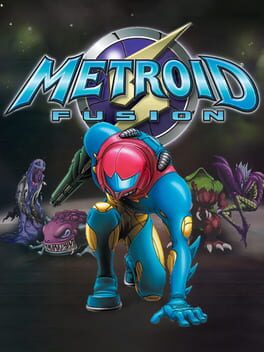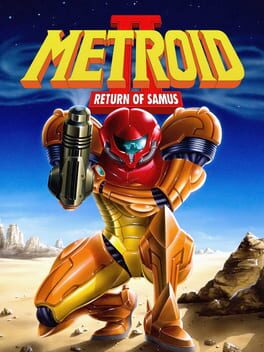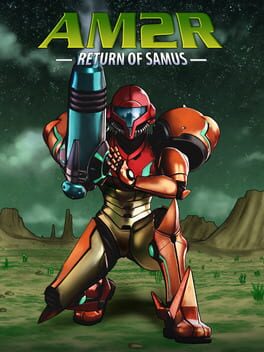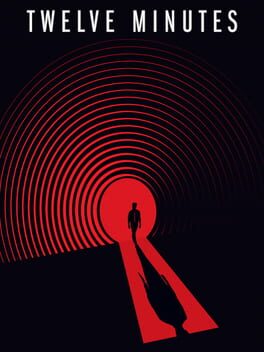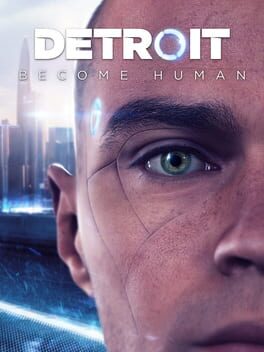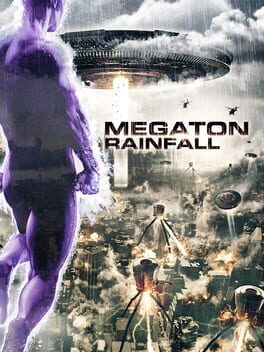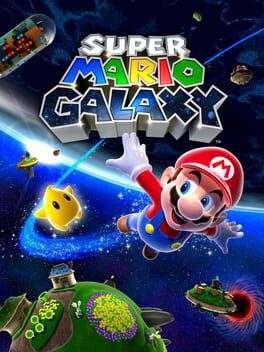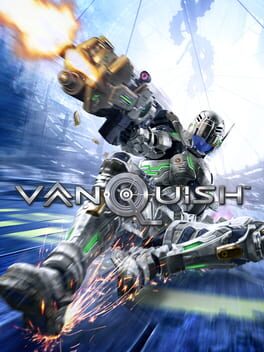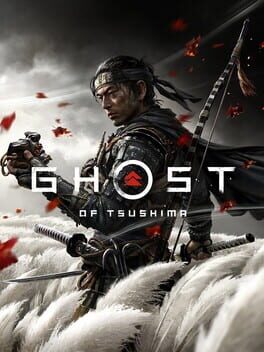deknalis
2021
Rating this more as a trilogy overall, since you can get every map from the trilogy within the same game, and also just because that seems to somewhat unexpectedly be the intention here. While the maps of Hitman 1 and 2 stand alone on their own, Hitman 3’s maps feel very much like a third act, a focused and cohesive story told through the shifts they make to the formula. The narrative crafted through the level design is still top notch, as IOI continue to prove themselves unmatched in building out a sandbox that has its own narrative pulse and rhythm. While nothing here is quite as conceptually clever as Hokkaido gamifying the series’ own mechanics by literally turning disguises into keys, they make up for it by fully living and breathing within the concept of an untethered 47. In fact, not a single mission truly goes back to the fully standard premise and formula on the first playthrough, always shifting either the starting point, the loadout options, or the intel availability. On the one hand, this might hamper future replayability, as I ultimately think Hitman 2 has a slight edge on the map design in a vacuum overall. But on the other, 3 has some of the most well put together and striking first runs of the trilogy. Berlin especially stands out in this regard, as well as the last leg of Chongqing.
In my view, Agent 47 is one of the most compelling central characters in gaming, not despite but because of his almost silent blank slate protagonist status. While most silent protagonists exist as an empty player proxy, 47 has occupied a more interesting space, especially within the new trilogy, serving both as a puppet controlled and carted around by a variety of characters within the world of the game and the players themselves, as well as an in-world blank slate capable of sliding into the identity of others seamlessly. Over the course of the trilogy though, he gains more of a mind of his own, and more freedom from his controllers. Coinciding with this, a greater amount of narrative in each game after the first is placed into his hands through cinematics (and in 3, through the events of the levels themselves). Without getting into spoilers, all that can be said is that 3’s seeming conclusion is nothing if not satisfying for the character, tackling both his formation of a personal identity and free will along with the series’ overarching theme of overcoming control and the most wealthy and powerful individuals still being vulnerable to those underneath them.
Taken as a whole, the new Hitman series is more than the sum of its parts, 2 and 3 especially perfectly complimenting and providing everything the other lacks. Plus you can kill rich assholes with a fish so it’s an automatic perfect score.
In my view, Agent 47 is one of the most compelling central characters in gaming, not despite but because of his almost silent blank slate protagonist status. While most silent protagonists exist as an empty player proxy, 47 has occupied a more interesting space, especially within the new trilogy, serving both as a puppet controlled and carted around by a variety of characters within the world of the game and the players themselves, as well as an in-world blank slate capable of sliding into the identity of others seamlessly. Over the course of the trilogy though, he gains more of a mind of his own, and more freedom from his controllers. Coinciding with this, a greater amount of narrative in each game after the first is placed into his hands through cinematics (and in 3, through the events of the levels themselves). Without getting into spoilers, all that can be said is that 3’s seeming conclusion is nothing if not satisfying for the character, tackling both his formation of a personal identity and free will along with the series’ overarching theme of overcoming control and the most wealthy and powerful individuals still being vulnerable to those underneath them.
Taken as a whole, the new Hitman series is more than the sum of its parts, 2 and 3 especially perfectly complimenting and providing everything the other lacks. Plus you can kill rich assholes with a fish so it’s an automatic perfect score.
2002
All of the mainline Metroid games are about self improvement and overcoming your environment in some form or another, but Fusion is the first to directly tie that into its theme in a meaningful way. Stripped bare of all abilities, you play a Samus robbed of agency, as the game literalizes its structural shift of closed off mini-missions into a story of reclaiming autonomy. You're unprotected and bare, unable to take hits as you used to, and enemies reform right before you eyes. Your worst enemy is a version of Samus who has the strength you once did. A relentless Metroid hunter (not like you yourself were in Metroid 2) coming after the final metroid, Samus herself.
Much has been said about this game being far more linear than all the others, and it's true, but I think also slightly overstated. Yes, the maps are both compulsory and come with objective markers, but you stray very far from them into massive hidden areas and entire pathways pretty often. It's less consistently linear and more as if the game starts hyper linear, but becomes more and more like a proper Metroid game as Samus becomes more like herself. The stripped down protagonist, more relentless enemies, and closed off areas leads to the most claustrophobic and dangerous moment to moment gameplay yet. No longer can you comfortably tank all incoming damage, as even normal enemies can kill you pretty quickly if you're not careful, let alone bosses. You're vulnerable to both heat and cold, and the freezing weapon is forced to be tied to an expendable resource instead of your normal weapon. There's nothing quite as satisfying in the other Metroid games as getting the varia suit so the fucking freezing X blobs can't hurt you anymore.
I only really have one big issue with this game. Every Metroid game has overly cryptic hidden secrets, but this feels like the only one where solving those hidden bits are actually necessary to progress sometimes. The sequence after beating Nightmare is the worst at this, sticking you into a maze extending across sections with multiple seeming dead ends and arbitrary progression paths. Speaking of which, Nightmare itself kinda sucks too. It's easy enough to forgive when literally every other boss here more or less surpasses any of the other ones in any Metroid game though.
Much has been said about this game being far more linear than all the others, and it's true, but I think also slightly overstated. Yes, the maps are both compulsory and come with objective markers, but you stray very far from them into massive hidden areas and entire pathways pretty often. It's less consistently linear and more as if the game starts hyper linear, but becomes more and more like a proper Metroid game as Samus becomes more like herself. The stripped down protagonist, more relentless enemies, and closed off areas leads to the most claustrophobic and dangerous moment to moment gameplay yet. No longer can you comfortably tank all incoming damage, as even normal enemies can kill you pretty quickly if you're not careful, let alone bosses. You're vulnerable to both heat and cold, and the freezing weapon is forced to be tied to an expendable resource instead of your normal weapon. There's nothing quite as satisfying in the other Metroid games as getting the varia suit so the fucking freezing X blobs can't hurt you anymore.
I only really have one big issue with this game. Every Metroid game has overly cryptic hidden secrets, but this feels like the only one where solving those hidden bits are actually necessary to progress sometimes. The sequence after beating Nightmare is the worst at this, sticking you into a maze extending across sections with multiple seeming dead ends and arbitrary progression paths. Speaking of which, Nightmare itself kinda sucks too. It's easy enough to forgive when literally every other boss here more or less surpasses any of the other ones in any Metroid game though.
Systematic Genocide Simulator, brought to you by Nintendo. Complete with jump scares, labyrinthian and borderline non-euclidean oppressive spaces to stumble through, bizarre and uncomfortable musical choices, a camera that manages to convey uneasy claustrophobia in a 1991 handheld game, and an ending that gives you the very companion that you set out to kill and makes you contemplate your actions through 5 minutes of uneventful walking set to melancholic yet vaguely friendly music as you realize you're the monster. How did this get made?
2023
This is almost the perfect Metroid game, but it's let down a bit by being a Metroid 2 remake. Not because its varied, visually diverse areas, consolidated save and recharge points, and added boss fights feel like a departure from the original Metroid 2's mood, but more because its inherited central structure of a handful of mini-boss fights repeated dozens of times is a flawed foundation for a game that isn't committed to sacrificing everything in the name of atmosphere like the original. It's not all inherited problems though, as I think this game also shoots itself in the foot a bit by expanding the number of Metroid fights for no good reason. It also succeeds in adding a bit more depth to the battles, through a mixture of varied and evolving movesets and environmental hazards, but on some level I kind of think that's a net negative. Making the fights longer and more involved only kind of worsens the reality of having to redo the same 4 fights over 50 times.
I will say, I think this is pretty structurally perfect in terms of having open space for exploration while maintaining a sense of linearity. It succeeds in bridging the linear Metroid 2 with the controlled exploration that one expects from the Metroid series pretty much perfectly by creating medium sized semi-open zones with a hard linear path to progress into different zones. It definitely has the best controls of any Metroid I've played thus far, and also the most inventive puzzle and level ideas.
Is there an AM2RR?
I will say, I think this is pretty structurally perfect in terms of having open space for exploration while maintaining a sense of linearity. It succeeds in bridging the linear Metroid 2 with the controlled exploration that one expects from the Metroid series pretty much perfectly by creating medium sized semi-open zones with a hard linear path to progress into different zones. It definitely has the best controls of any Metroid I've played thus far, and also the most inventive puzzle and level ideas.
Is there an AM2RR?
2021
Using a timeloop narrative in games makes a lot of sense, because they kind of exist on the player level for most games anyway, as a result of checkpoints or save scumming. Go forward, die, come back earlier, and try something you learned to succeed a second time. The biggest issue here is that Twelve Minutes is trying to be a timeloop movie, not a timeloop game.
Imagine you're making a movie. You have 4 "loops" of the main character trying out a plan. The first 3 times it fails because of some variable he didn't anticipate, before succeeding on the fourth. What do you do to make sure it's not boring? Simple, a quick montage showing what worked and how the protagonist corrects their mistakes until they succeed. Twelve Minutes can't do this. Instead, you play completely through 4 loops, with the game throwing sometimes unforseen obstacles your way or characters not reacting to your changes until you finally get it right. It's exactly as tedious as it sounds, if not more. This on its own can still be compelling. The game could've focused itself around the hopeless tedium of clockwork precision, of the ultimately soul sucking feeling of repeatedly failing to make sure life is orchestrated in the perfect way. But it's too focused on being a twisty Hitchcockian thriller that ultimately repeatedly shoots its pacing in the foot. It doesn't help that the narrative being told also just kind of sucks on its own, particularly by the end.
Imagine you're making a movie. You have 4 "loops" of the main character trying out a plan. The first 3 times it fails because of some variable he didn't anticipate, before succeeding on the fourth. What do you do to make sure it's not boring? Simple, a quick montage showing what worked and how the protagonist corrects their mistakes until they succeed. Twelve Minutes can't do this. Instead, you play completely through 4 loops, with the game throwing sometimes unforseen obstacles your way or characters not reacting to your changes until you finally get it right. It's exactly as tedious as it sounds, if not more. This on its own can still be compelling. The game could've focused itself around the hopeless tedium of clockwork precision, of the ultimately soul sucking feeling of repeatedly failing to make sure life is orchestrated in the perfect way. But it's too focused on being a twisty Hitchcockian thriller that ultimately repeatedly shoots its pacing in the foot. It doesn't help that the narrative being told also just kind of sucks on its own, particularly by the end.
(spoilers ahead)
Full disclosure, I wasn't a fan of the first game and really only became interested here because the leaks and shitstorm showed this one was at least gonna be actually daring and interesting. Most of the sentimental drama beats still comes off broad and manufactured to me (though nothing here is worse than the opening of the first game in that regard imo), but it's also much less of an issue since it feels like there's much more to the story than that. The first Last of Us was a kind of paint by numbers drama, but Part II feels much more like archetypal exploration, almost feels like it should be set to a folk song. A parable of generational trauma reverberating and spreading through vengeance and violence. Characters again do unbelievably awful things in the name of love, but it's even hollower this time around. Instead of at least a desire to save or heal, it's a misguided rampage to preserve memory and legacy of people who never would've wanted this in the first place. The gameplay is almost certainly Naughty Dog’s best, maybe just behind Crash Team Racing. The wide open spaces allow for much more choice and freedom in its stealth sections, and the weapon progression feels genuinely varied and valuable. There’s even an actual genuinely horror vibe boss fight. But the dissonance between player and character builds as the game progresses, an increasing alienation from Ellie’s actions in a way that far outstrips anything the first game did with its medium. The way the final act comes together to give you some form of moral high ground by having you fight inhumane slavers made my eyes roll, seeming in the moment a cheap unearned redemption moment. But even though the universe hands her on a silver platter a justification for her journey out west and a noble purpose to letting her bloodlust dissipate, in the end, she just can’t help but reopen the wound again, not even really sure why she’s doing so anymore.
The narrative isn’t without a pretty sizable amount of issues though. The targeting toward capital G Gamers renders this with too much excess and redundancy in getting its point across to you (and it’s not like it’s enough to make them get it anyway). The degree to which Abby is propped up by the game’s second leg to get you to like her is almost comical, and shaving the edges off the (poorly done, but still present) ambiguity in Joel’s decision at the end of the first game is perplexing. People’s reverence of Joel can’t fully be attributed to their desires to live out noble anti-hero fantasies, it was also a product of the first game doing the bare minimum to prod into his past actions and disturbed morality, as well as making any opposition to him in a way that invites or even encourages cop outs and justifications to his actions. Even though I agree with Part II’s assessment of him, it feels less like justified metanarrative comeuppance of his fans and more like a backhanded slap to someone looking at something you invited them to look at. The sheer brutality never feels like the game is revelling in bloody exploitation, but it does feel like it doesn’t justify its purpose past a certain point, becoming excessive more than anything else. Ellie's bloodlust leads to as many compelling emotional and narrative beats as it does to overwritten worked through backwards contrived bits of character parallels and torture porn. This isn’t a story that requires a subtle hand, but it is one that could have benefitted from being less broad with its uses of characters and big dramatic beats.
So it’s pretty good. But just watch Spider-Man 3 and you’ll get a better work about the cycles and self destructive forces of revenge and forgiveness.
Full disclosure, I wasn't a fan of the first game and really only became interested here because the leaks and shitstorm showed this one was at least gonna be actually daring and interesting. Most of the sentimental drama beats still comes off broad and manufactured to me (though nothing here is worse than the opening of the first game in that regard imo), but it's also much less of an issue since it feels like there's much more to the story than that. The first Last of Us was a kind of paint by numbers drama, but Part II feels much more like archetypal exploration, almost feels like it should be set to a folk song. A parable of generational trauma reverberating and spreading through vengeance and violence. Characters again do unbelievably awful things in the name of love, but it's even hollower this time around. Instead of at least a desire to save or heal, it's a misguided rampage to preserve memory and legacy of people who never would've wanted this in the first place. The gameplay is almost certainly Naughty Dog’s best, maybe just behind Crash Team Racing. The wide open spaces allow for much more choice and freedom in its stealth sections, and the weapon progression feels genuinely varied and valuable. There’s even an actual genuinely horror vibe boss fight. But the dissonance between player and character builds as the game progresses, an increasing alienation from Ellie’s actions in a way that far outstrips anything the first game did with its medium. The way the final act comes together to give you some form of moral high ground by having you fight inhumane slavers made my eyes roll, seeming in the moment a cheap unearned redemption moment. But even though the universe hands her on a silver platter a justification for her journey out west and a noble purpose to letting her bloodlust dissipate, in the end, she just can’t help but reopen the wound again, not even really sure why she’s doing so anymore.
The narrative isn’t without a pretty sizable amount of issues though. The targeting toward capital G Gamers renders this with too much excess and redundancy in getting its point across to you (and it’s not like it’s enough to make them get it anyway). The degree to which Abby is propped up by the game’s second leg to get you to like her is almost comical, and shaving the edges off the (poorly done, but still present) ambiguity in Joel’s decision at the end of the first game is perplexing. People’s reverence of Joel can’t fully be attributed to their desires to live out noble anti-hero fantasies, it was also a product of the first game doing the bare minimum to prod into his past actions and disturbed morality, as well as making any opposition to him in a way that invites or even encourages cop outs and justifications to his actions. Even though I agree with Part II’s assessment of him, it feels less like justified metanarrative comeuppance of his fans and more like a backhanded slap to someone looking at something you invited them to look at. The sheer brutality never feels like the game is revelling in bloody exploitation, but it does feel like it doesn’t justify its purpose past a certain point, becoming excessive more than anything else. Ellie's bloodlust leads to as many compelling emotional and narrative beats as it does to overwritten worked through backwards contrived bits of character parallels and torture porn. This isn’t a story that requires a subtle hand, but it is one that could have benefitted from being less broad with its uses of characters and big dramatic beats.
So it’s pretty good. But just watch Spider-Man 3 and you’ll get a better work about the cycles and self destructive forces of revenge and forgiveness.
2017
Drown out the vaguely pseudophilosophical and largely disposable story with music from Man of Steel or Unbreakable, and you have yourself a fascinating take on a superhero game, resting somewhere between Superman and Dr. Manhattan. More than anything, a loneliness simulator showcasing the sheer isolation of unfathomable power. Cities and NPCs are like moving ants to you, the virtual nonexistence of their interactivity demonstrating the unbridgeable gap between a normal individual and a deity who holds the keys to all of time and space. In a single second, you can do more damage to a city than any enemy. Protect the people not just from invasion, but from your own incalculable strength. Or venture out into the stars, feeling the complete isolation of their lifelessness, and move from empty world to empty world, flying forward till the end of time.
2021
This review contains spoilers
My first few hours with Dread had the slightest twinge of disappointment to them. Mechanically, this is almost certainly the best 2D Metroid game. Samus is a joy to control, with a perfect blend of agility and weight, and movement options like the dash and grapple that build and stack on each other wonderfully. Combined with all the little animation details and comfortable controls, the simple act of moving has never been better. The combat is also probably the series best, since even if the counter mechanic reduces many individual enemies into simple parry fodder, and the bosses all feel just a little too slow for how spry and agile you now are, there’s lots of fun and fairly difficult boss fights that balance the badass interactive cinematic moments with actual 2D fast paced combat well (this is also arguably the only 2D Metroid with a good final boss. And it’s a great final boss.) The aesthetics, particularly in music, have a few missteps, but the amount of background details in the fauna of the world and their reaction to you was consistently dazzling to look at, and some of its sparser foreground lit tunnels and caves look almost painterly.
But I don’t like the Metroid games because they’ve had great combat, or even exploration. I like them because their ability to convey an empty, alien, and hostile mood is unparalleled, and the ability to (in the few of them that have ventured to do it) tell more traditional and involved stories that tie in perfectly to their mechanical and structural decisions. Dread grasps the former right away. The initial jolt of panic the first couple EMMIs induce is perfection, and the knowledge of their impending presence because of specially marked barriers is a perfect cause of momentary panic. Hell, even when the EMMIs fail to really keep up with your own advancement and very quickly become rather trivial, it feels like the game showing off its understanding of Metroid’s repeated story as ultimately one of gaining control over your surroundings from within, of using the hostile world’s own weapons and history against it. Even the little details of environmental storytelling, like empty and mechanical EMMI zones being reclaimed by the natural life or the forest zones slowly thinning out, hit beautifully. Where it seemingly falters, though, is in the overt narrative.
The set up is sound. Instead of a deep venture into the world to then escape it, as usual, the intent is escape from the outset. The idea of helplessness is underscored to a near comical degree from the very beginning, including from a suspiciously out of character speech from ADAM. But as Dread dumps more and more lore drops about past warring tribes and pulls the Chozo from the dead yet again, it’s a bit hard not to feel like the writing here has lost the theme in favor of pure plot. The idea of ending conflicts long past and Samus saying goodbye to her entire history once and for all is an admirable one, but one begins to get the sense that there was a little more lore dumping happening to let any of it sit. The Fusion-esque structure of getting instruction from ADAM begins to feel purposelessly rehashed, a needless attempt at harkening back to the much more narratively cohesive game’s story of breaking free from control.
And as it turns out, that’s exactly what it is. Moments before the game’s final boss, Samus pops the false shadow of ADAM like a balloon, to reveal the game’s overarching villain behind it. The hollow recreation of Fusion clicks into place. In Dread, the classic Samus self-actualization formula of the series is in and of itself the villain’s scheme, a controlled illusion of power and freedom to extract Samus at her most powerful and seemingly free in an underestimation of her will and ability. Moments before its ending, Dread’s story comes alive as not just a story of gaining the strength to grasp one’s own autonomy, but also one of the many obfuscating layers and levels in which the resistance to self-realization manifests.
TL;DR
Fusion is The Matrix. Dread is Matrix Reloaded.
But I don’t like the Metroid games because they’ve had great combat, or even exploration. I like them because their ability to convey an empty, alien, and hostile mood is unparalleled, and the ability to (in the few of them that have ventured to do it) tell more traditional and involved stories that tie in perfectly to their mechanical and structural decisions. Dread grasps the former right away. The initial jolt of panic the first couple EMMIs induce is perfection, and the knowledge of their impending presence because of specially marked barriers is a perfect cause of momentary panic. Hell, even when the EMMIs fail to really keep up with your own advancement and very quickly become rather trivial, it feels like the game showing off its understanding of Metroid’s repeated story as ultimately one of gaining control over your surroundings from within, of using the hostile world’s own weapons and history against it. Even the little details of environmental storytelling, like empty and mechanical EMMI zones being reclaimed by the natural life or the forest zones slowly thinning out, hit beautifully. Where it seemingly falters, though, is in the overt narrative.
The set up is sound. Instead of a deep venture into the world to then escape it, as usual, the intent is escape from the outset. The idea of helplessness is underscored to a near comical degree from the very beginning, including from a suspiciously out of character speech from ADAM. But as Dread dumps more and more lore drops about past warring tribes and pulls the Chozo from the dead yet again, it’s a bit hard not to feel like the writing here has lost the theme in favor of pure plot. The idea of ending conflicts long past and Samus saying goodbye to her entire history once and for all is an admirable one, but one begins to get the sense that there was a little more lore dumping happening to let any of it sit. The Fusion-esque structure of getting instruction from ADAM begins to feel purposelessly rehashed, a needless attempt at harkening back to the much more narratively cohesive game’s story of breaking free from control.
And as it turns out, that’s exactly what it is. Moments before the game’s final boss, Samus pops the false shadow of ADAM like a balloon, to reveal the game’s overarching villain behind it. The hollow recreation of Fusion clicks into place. In Dread, the classic Samus self-actualization formula of the series is in and of itself the villain’s scheme, a controlled illusion of power and freedom to extract Samus at her most powerful and seemingly free in an underestimation of her will and ability. Moments before its ending, Dread’s story comes alive as not just a story of gaining the strength to grasp one’s own autonomy, but also one of the many obfuscating layers and levels in which the resistance to self-realization manifests.
TL;DR
Fusion is The Matrix. Dread is Matrix Reloaded.
1994
The opening here does a great job at getting the mood of a horror game. Abandoned, clearly ransacked spaces and building dread. The game never really approaches a sense of mood that controlled again, and I think that's a slight shame. Past the opening, the exploration is the clear highlight, with lots of sequence breaking opportunities, and a pretty open map that can be exploited well. I loved the feeling near the beginning of being dropped into a massive map, with no real guidance of where to go and in what order. I think there's pretty big issues that hold it back a bit though.
Speaking of pretty big, you're huge. Samus' hitbox is massive, and it only further encourages you to just tank through all of the pretty middling boss encounters, which is still almost always the optimal strategy. The tool switching is annoying, and the movement is a little stiff, particularly with wall jumping being really annoying to pull off with any consistency. I think it's really a testament to the great visuals and fun hidden secret finding (which doesn't require you to shoot in the dark a bunch for the first time because of the visor) that I still think this is a really solid game despite all of its issues.
Speaking of pretty big, you're huge. Samus' hitbox is massive, and it only further encourages you to just tank through all of the pretty middling boss encounters, which is still almost always the optimal strategy. The tool switching is annoying, and the movement is a little stiff, particularly with wall jumping being really annoying to pull off with any consistency. I think it's really a testament to the great visuals and fun hidden secret finding (which doesn't require you to shoot in the dark a bunch for the first time because of the visor) that I still think this is a really solid game despite all of its issues.
2007
It's largely just a spectacle game. 64 and Sunshine had sometimes frustrating jank to their platforming, but that same jank also allowed for greater options in movement and let you exploit the loose and fast movement of Mario in fun ways. Here, not only is the movement slower and more restricted, but levels are sectioned off into these tiny chunks that make proper movement exploits and section skips nigh impossible. The walljump in particular is so frustratingly limited here compared to older 3D Mario games, it's only really viable if you see 2 directly vertical walls next to each other in predetermined placement. 64 is dated as hell, particularly its camera, but I think it and Sunshine both manage to craft the ideal of the skill balance in a 3D Mario game: fun but challenging for kids, with enough tricks and harder sections to offer a satisfyingly high skill ceiling. This feels like the beginning of what Odyssey would go on to do to a much greater degree, restrict so much of its gameplay to pre-decided spectacle moments and consistently reward players for just participating in them. The spectacle is admittedly really good though.
2010
2020
